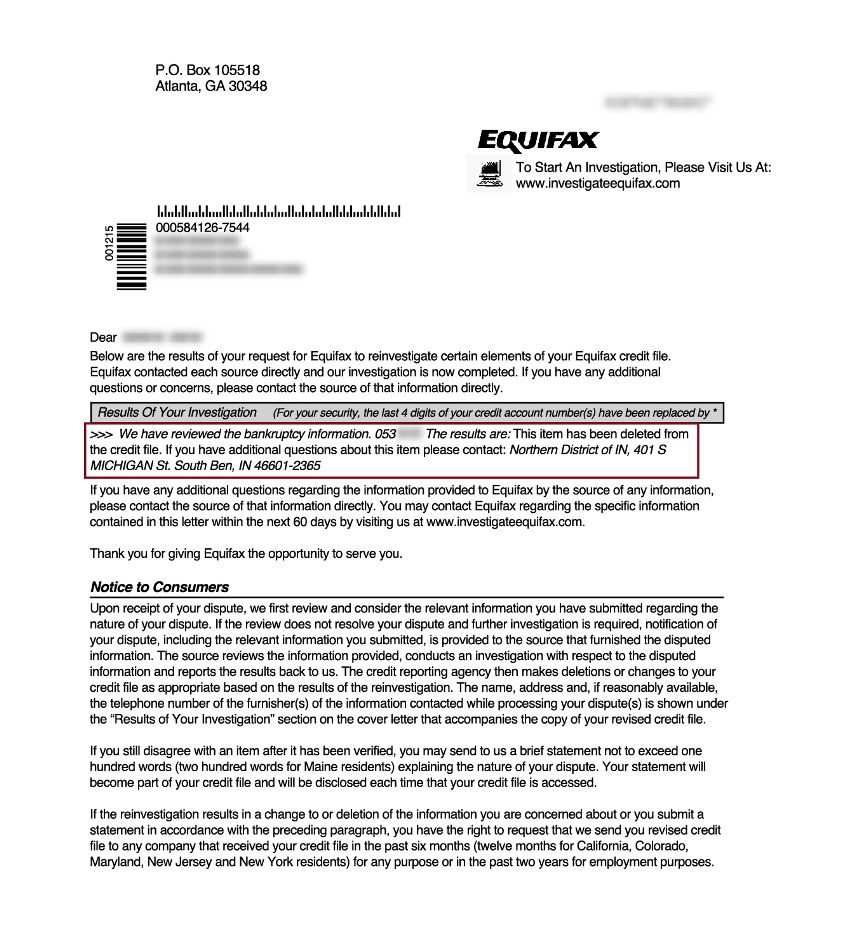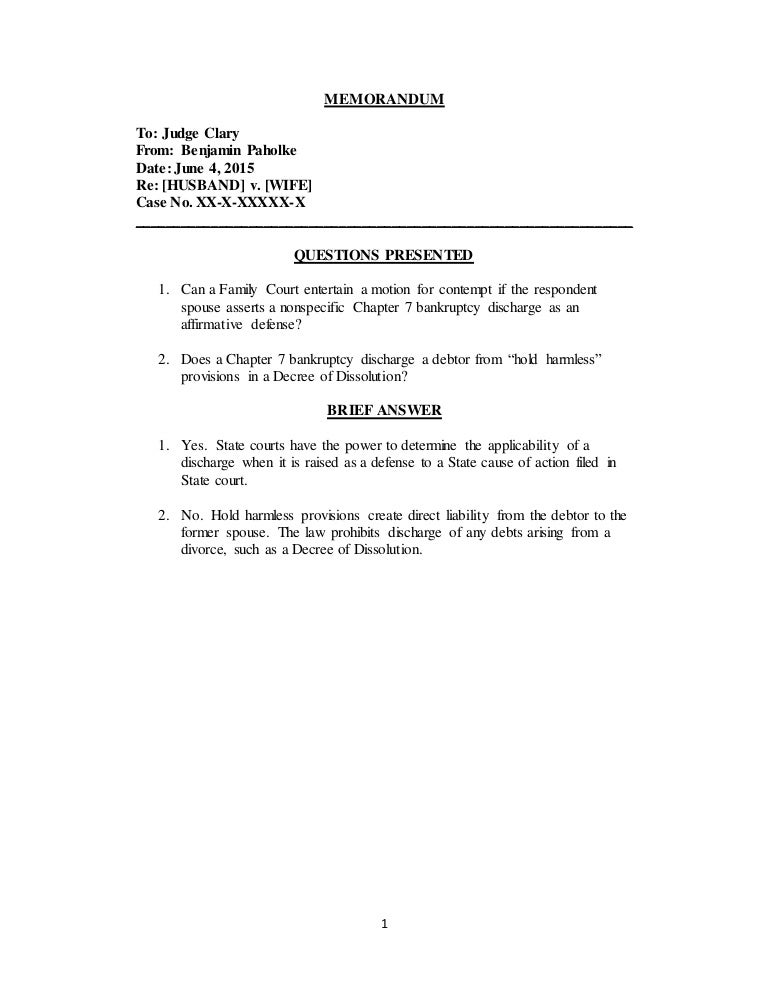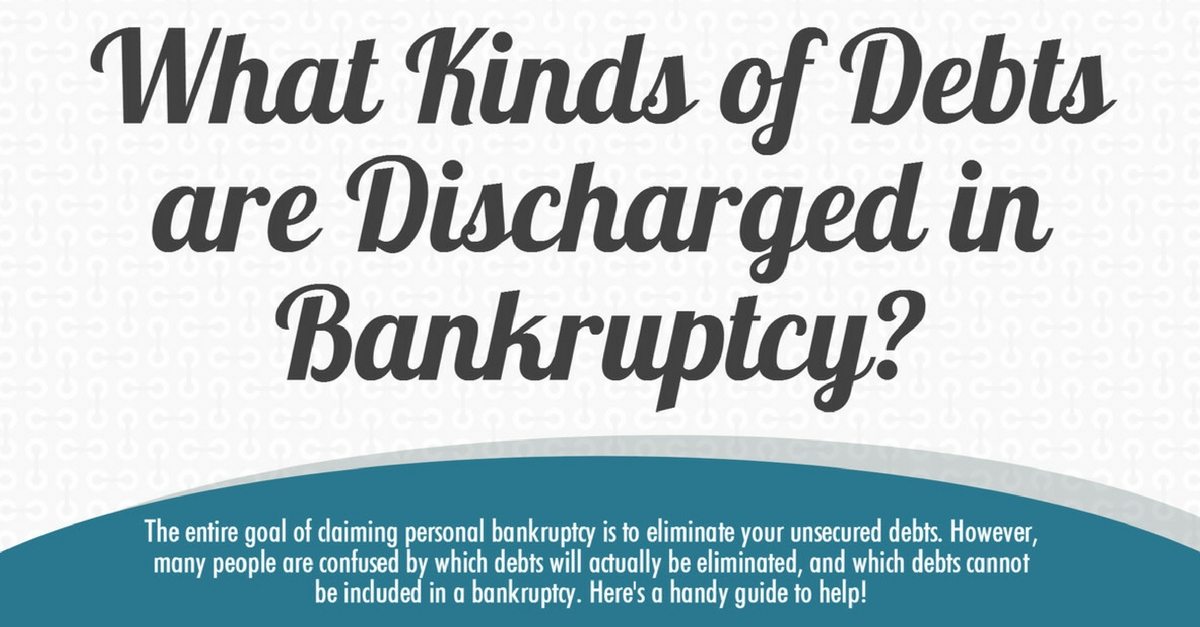Which Of The Following Cannot Be Discharged By Filing Bankruptcy
Which Of The Following Cannot Be Discharged By Filing Bankruptcy - A debtor cannot receive a discharge in a chapter 13 bankruptcy if: The following debts cannot be discharged in either chapter 7 or chapter 13 bankruptcies. When you successfully complete your chapter 7 or 13 case, you are freed of all debts that are eligible for discharge, such as. If you file for chapter 7, you will. The debtor had a prior discharge in a chapter 7 case filed within four years, or.
The following debts cannot be discharged in either chapter 7 or chapter 13 bankruptcies. If you file for chapter 7, you will. The debtor had a prior discharge in a chapter 7 case filed within four years, or. When you successfully complete your chapter 7 or 13 case, you are freed of all debts that are eligible for discharge, such as. A debtor cannot receive a discharge in a chapter 13 bankruptcy if:
If you file for chapter 7, you will. A debtor cannot receive a discharge in a chapter 13 bankruptcy if: The debtor had a prior discharge in a chapter 7 case filed within four years, or. The following debts cannot be discharged in either chapter 7 or chapter 13 bankruptcies. When you successfully complete your chapter 7 or 13 case, you are freed of all debts that are eligible for discharge, such as.
Best Bankruptcy Attorneys Saint Paul, MN
A debtor cannot receive a discharge in a chapter 13 bankruptcy if: If you file for chapter 7, you will. When you successfully complete your chapter 7 or 13 case, you are freed of all debts that are eligible for discharge, such as. The debtor had a prior discharge in a chapter 7 case filed within four years, or. The.
What Cannot Be Discharged in a Chapter 7 Bankruptcy Know the Limits
A debtor cannot receive a discharge in a chapter 13 bankruptcy if: When you successfully complete your chapter 7 or 13 case, you are freed of all debts that are eligible for discharge, such as. The following debts cannot be discharged in either chapter 7 or chapter 13 bankruptcies. If you file for chapter 7, you will. The debtor had.
How To Remove A Discharged Bankruptcy From Credit Report Credit Walls
The debtor had a prior discharge in a chapter 7 case filed within four years, or. When you successfully complete your chapter 7 or 13 case, you are freed of all debts that are eligible for discharge, such as. If you file for chapter 7, you will. The following debts cannot be discharged in either chapter 7 or chapter 13.
Filing Bankruptcy Procedure Debt Discharged Ppt File Aids
If you file for chapter 7, you will. The following debts cannot be discharged in either chapter 7 or chapter 13 bankruptcies. The debtor had a prior discharge in a chapter 7 case filed within four years, or. When you successfully complete your chapter 7 or 13 case, you are freed of all debts that are eligible for discharge, such.
What Debt Can't Be Discharged in Filing for Bankruptcy?
A debtor cannot receive a discharge in a chapter 13 bankruptcy if: The following debts cannot be discharged in either chapter 7 or chapter 13 bankruptcies. The debtor had a prior discharge in a chapter 7 case filed within four years, or. When you successfully complete your chapter 7 or 13 case, you are freed of all debts that are.
How To Remove A Discharged Bankruptcy From Credit Report Credit Walls
The debtor had a prior discharge in a chapter 7 case filed within four years, or. If you file for chapter 7, you will. A debtor cannot receive a discharge in a chapter 13 bankruptcy if: The following debts cannot be discharged in either chapter 7 or chapter 13 bankruptcies. When you successfully complete your chapter 7 or 13 case,.
How To Remove A Discharged Bankruptcy From Credit Report Credit Walls
When you successfully complete your chapter 7 or 13 case, you are freed of all debts that are eligible for discharge, such as. If you file for chapter 7, you will. The debtor had a prior discharge in a chapter 7 case filed within four years, or. The following debts cannot be discharged in either chapter 7 or chapter 13.
Debts Discharged in Bankruptcy Infographic
The following debts cannot be discharged in either chapter 7 or chapter 13 bankruptcies. A debtor cannot receive a discharge in a chapter 13 bankruptcy if: If you file for chapter 7, you will. When you successfully complete your chapter 7 or 13 case, you are freed of all debts that are eligible for discharge, such as. The debtor had.
What Debt Can't Be Discharged in Filing for Bankruptcy?
When you successfully complete your chapter 7 or 13 case, you are freed of all debts that are eligible for discharge, such as. If you file for chapter 7, you will. A debtor cannot receive a discharge in a chapter 13 bankruptcy if: The debtor had a prior discharge in a chapter 7 case filed within four years, or. The.
What Debts can be Discharged in an Indiana Bankruptcy Filing? Whitten
If you file for chapter 7, you will. The debtor had a prior discharge in a chapter 7 case filed within four years, or. The following debts cannot be discharged in either chapter 7 or chapter 13 bankruptcies. A debtor cannot receive a discharge in a chapter 13 bankruptcy if: When you successfully complete your chapter 7 or 13 case,.
The Debtor Had A Prior Discharge In A Chapter 7 Case Filed Within Four Years, Or.
If you file for chapter 7, you will. The following debts cannot be discharged in either chapter 7 or chapter 13 bankruptcies. When you successfully complete your chapter 7 or 13 case, you are freed of all debts that are eligible for discharge, such as. A debtor cannot receive a discharge in a chapter 13 bankruptcy if:




:max_bytes(150000):strip_icc()/what-debt-cannot-be-discharged-when-filing-bankruptcy.asp_final-1787b61755b34e1799fdde71e9b8508f.png)



:max_bytes(150000):strip_icc()/bankruptcy-6bd80afbfd6a4a95bff39436b3f92796.jpg)
